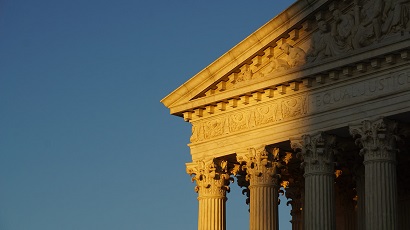Is sharing showers in high school required?
In 2017 a group of parents organized as
Parents Rights in Education at Dallas School District sued the district for violations of their children's privacy due to being forced to share showers with biologically opposite sex persons. As described in the
original complaint:
This case is about protecting the privacy of every student within Dallas School District -- privacy that Defendants violate each school day through new rules and policies that radically changed the meaning of "sex" in Title IX. Defendants have unilaterally rejected the Title IX meaning of sex, which for 40 years has meant biologically male and female, two objectively determined, fixed, binary sexes rooted in our human reproductive nature. In lieu of this unambiguous meaning of sex, Defendants inject a distinct and altogether different concept of gender identity which is subjectively discerned, fluid, and nonbinary.
The case involved a biologically female, "transgender" student who insisted on showering in the boy's locker room, even though separate accommodations in a private shower were made for them. This student objected even to the private shower accommodations and the district relented and allowed them to shower with the boys. Title IX is a federal civil rights law passed as part of the Education Amendments of 1972 that protects people from discrimination based on sex in education programs or activities that receive Federal financial assistance.
The case lost in US District Court and was dismissed by the Ninth US Circuit Court of Appeals and at this point very few cases move on to the next step which is the US Supreme Court. Recently, however, attorneys from Child & Parental Rights Campaign in Georgia contacted
Parents Rights in Education and they have filed a Petition for a Writ of Certiorari with the US Supreme Court asking them to review the case.
The US Supreme Court will be reviewing the petition and will be deciding soon whether or not they will hear the case.
In a Supreme Court Cert petition, the focus is on the reasons why the Court should agree to review the case, instead of on how they should rule on the issues. The Supreme Court gets thousands of requests to review cases every year and agrees to review less than 100. Therefore, in order to get through the first stage, the petition has to provide compelling reasons why this is one of the cases that should be accepted. According to the Court’s tradition, it will only take cases if they: 1) Present a conflict between two or more federal courts of appeal on an important federal legal issue; 2) The court of appeals decided an important question of federal law that the Supreme Court has not yet decided but should decide; or 3) The court of appeals decided an important question of federal law in a way that conflicts with relevant decisions of the Supreme Court.
Consequently, in preparing the Petition, the focus will be on how the 9th Circuit’s decision on the various constitutional claims you raised conflicts with other courts of appeal and/or conflicts with prior Supreme Court cases. The emphasis will be that these conflicting decisions should be resolved by the Supreme Court because they are interfering with fundamental rights. Furthermore, this deprivation of rights is of nationwide importance as schools continue to adopt policies such as the one adopted by Dallas School District. Therefore, it is imperative that the Court issue a decision.
Many eagerly await the court's decision to hear this case.
--Staff Reports| Post Date: 2020-12-05 21:09:27 | Last Update: 2020-12-06 08:26:59 |






